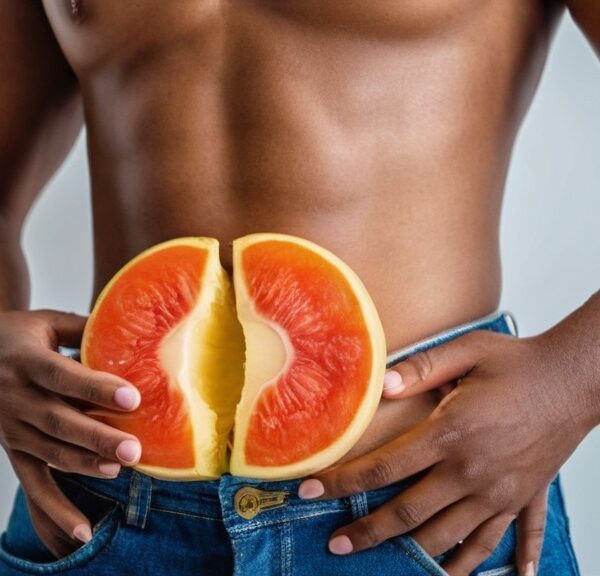Inflammation plays a crucial role in the body’s response to injury and stress. For athletes, it can be both beneficial and detrimental. On one hand, inflammation helps repair tissues after intense workouts.
On the other hand, chronic inflammation can lead to injuries and hinder performance. Athletes often push their bodies to the limit, which can trigger excessive inflammation. This response can result in fatigue, pain, and decreased performance.
Understanding this balance is essential for athletes aiming to optimize their training and recovery.
Key Takeaways
- Inflammation can impact athletes’ performance and recovery, making it important to understand and address.
- Anti-inflammatory foods play a crucial role in enhancing athletic performance by reducing inflammation and supporting recovery.
- Top anti-inflammatory foods for athletes include turmeric, ginger, omega-3 fatty acids, berries, cherries, leafy greens, cruciferous vegetables, nuts, and seeds.
- Incorporating turmeric and ginger into an anti-inflammatory diet can provide athletes with natural and effective inflammation-fighting benefits.
- Omega-3 fatty acids, found in foods like fish and flaxseeds, offer numerous benefits for athletes, including reducing inflammation and supporting overall health.
The Role of Anti-Inflammatory Foods in Enhancing Athletic Performance
Anti-inflammatory foods can significantly impact an athlete’s performance and recovery. These foods help reduce inflammation, allowing athletes to train harder and recover faster. Incorporating them into a diet can lead to improved endurance and strength.
Athletes who consume anti-inflammatory foods often experience fewer injuries. They also enjoy better overall health, which translates into enhanced performance on the field or court. A well-rounded diet rich in these foods can be a game-changer for any athlete.
Top Anti-Inflammatory Foods for Athletes

Several foods stand out for their anti-inflammatory properties. Fatty fish, such as salmon and mackerel, are rich in omega-3 fatty acids. These acids help reduce inflammation and promote heart health.
Berries, particularly blueberries and strawberries, are also excellent choices. They contain antioxidants that combat oxidative stress. Other notable options include leafy greens, nuts, seeds, and spices like turmeric and ginger.
Incorporating Turmeric and Ginger into an Anti-Inflammatory Diet
Turmeric and ginger are powerful spices known for their anti-inflammatory effects. Curcumin, the active compound in turmeric, has shown promise in reducing inflammation. Athletes can benefit from adding turmeric to smoothies, soups, or rice dishes.
Ginger also offers significant health benefits. It can alleviate muscle soreness and improve recovery times. Athletes can enjoy ginger in teas, stir-fries, or as a seasoning for various dishes.
The Benefits of Omega-3 Fatty Acids for Athletes
Omega-3 fatty acids play a vital role in reducing inflammation. They help lower levels of inflammatory markers in the body. For athletes, this means less muscle soreness and quicker recovery after intense workouts.
Incorporating omega-3s into a diet is relatively easy. Fatty fish, flaxseeds, and walnuts are excellent sources. Regular consumption can lead to improved joint health and overall athletic performance.
How Berries and Cherries Can Help Reduce Inflammation in Athletes

Berries and cherries are not only delicious but also packed with antioxidants. These fruits help combat inflammation and oxidative stress in the body. Athletes can benefit from their natural sugars and vitamins while reducing inflammation.
Cherries, particularly tart varieties, have shown promise in reducing muscle soreness. Consuming them post-workout can aid recovery. Berries can easily fit into smoothies, yogurt, or as snacks throughout the day.
The Power of Leafy Greens and Cruciferous Vegetables in Fighting Inflammation
Leafy greens like spinach and kale are nutritional powerhouses. They provide essential vitamins and minerals that support overall health. Their high antioxidant content helps fight inflammation effectively.
Cruciferous vegetables such as broccoli and Brussels sprouts also offer significant benefits. They contain compounds that help detoxify the body and reduce inflammation. Including these vegetables in meals can enhance an athlete’s diet.
Including Nuts and Seeds in an Anti-Inflammatory Diet for Bodybuilders
Nuts and seeds are excellent sources of healthy fats and protein. They provide essential nutrients that support muscle growth and recovery. Almonds, walnuts, chia seeds, and flaxseeds are particularly beneficial for athletes.
These foods also contain antioxidants that help combat inflammation. Bodybuilders can incorporate them into smoothies, salads, or as snacks. Regular consumption can enhance performance and support overall health.
The Importance of Hydration and Anti-Inflammatory Beverages for Athletes
Hydration is crucial for athletic performance and recovery. Dehydration can exacerbate inflammation and hinder performance. Athletes should prioritize water intake throughout the day.
In addition to water, anti-inflammatory beverages can provide extra benefits. Herbal teas, such as green tea or ginger tea, offer antioxidants that combat inflammation. Smoothies made with anti-inflammatory ingredients can also support hydration while providing essential nutrients.
Creating Balanced Meals and Snacks to Support an Anti-Inflammatory Diet
Balanced meals are essential for athletes looking to reduce inflammation. A combination of protein, healthy fats, and carbohydrates provides the necessary fuel for training. Incorporating anti-inflammatory foods into these meals enhances their effectiveness.
Snacks also play a vital role in maintaining energy levels throughout the day. Options like Greek yogurt with berries or a handful of nuts can provide quick energy while fighting inflammation. Planning meals ahead of time ensures athletes stay on track with their dietary goals.
Practical Tips for Implementing an Anti-Inflammatory Diet for Enhanced Athletic Performance
Implementing an anti-inflammatory diet requires planning and commitment. Start by gradually incorporating more anti-inflammatory foods into daily meals. Focus on whole foods rather than processed options for maximum benefits.
Meal prepping can simplify the process significantly. Preparing meals in advance ensures athletes have healthy options readily available. Additionally, staying informed about nutrition can empower athletes to make better food choices.
In conclusion, understanding inflammation’s impact on athletic performance is crucial for athletes aiming to excel in their sport. By incorporating anti-inflammatory foods into their diets, they can enhance recovery, reduce injuries, and improve overall performance. With practical tips and a focus on balanced meals, athletes can effectively implement an anti-inflammatory diet to support their training goals.
FAQs
What are anti-inflammatory foods?
Anti-inflammatory foods are foods that contain compounds that help reduce inflammation in the body. These foods can help reduce the risk of chronic diseases and improve overall health.
How do anti-inflammatory foods benefit athletes?
Anti-inflammatory foods can benefit athletes by reducing inflammation in the body, which can help with recovery after intense workouts, reduce muscle soreness, and improve overall performance.
What are some examples of anti-inflammatory foods?
Examples of anti-inflammatory foods include fatty fish (such as salmon and mackerel), leafy greens (such as spinach and kale), berries (such as blueberries and strawberries), nuts (such as almonds and walnuts), and olive oil.
Are there any specific diets that focus on anti-inflammatory foods for athletes?
Yes, some diets, such as the Mediterranean diet and the anti-inflammatory diet, focus on incorporating anti-inflammatory foods to promote overall health and wellness, which can be beneficial for athletes.
Are there any potential risks or drawbacks to consuming anti-inflammatory foods?
While anti-inflammatory foods are generally considered safe and beneficial for most people, some individuals may have allergies or sensitivities to certain foods. It’s important to consult with a healthcare professional or a registered dietitian before making significant changes to your diet.



